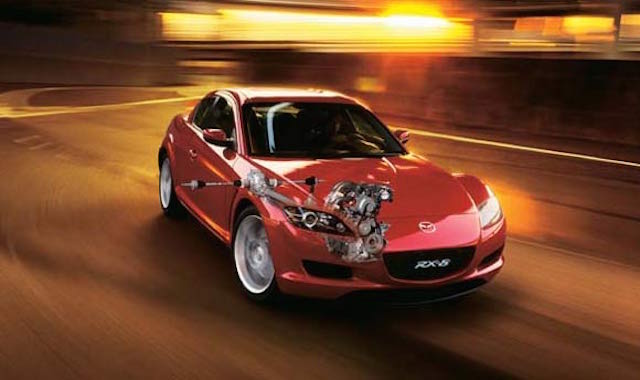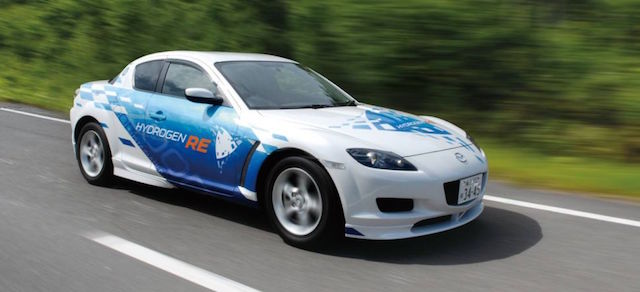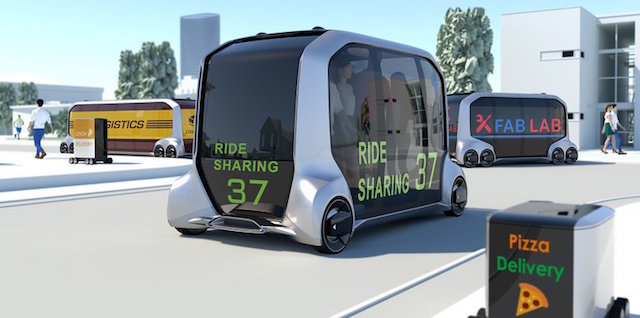
Toyota is to equip its future self-driving electric cars (EV) with Mazda’s rotary engine – as a generator to charge the battery and extend the operating range.
Mazda patented the use of the rotary as a generator some time ago and last used the layout in the 2013 Mazda 2 RE prototype.
Mazda North America chief Masahiro Moro told news agency Bloomberg the rotary engine was ideal for the purpose.
“This is a very suitable engine to run a generator because it’s compact and lightweight, with no noise or vibration, and it has very good fuel economy,” Moro said.
The rotary engine is more compact and has fewer moving parts than a conventional petrol or diesel unit. Mazda last used it as a primary powerplant in the RX-8 sports car, last built in 2012.
Mazda has since often talked about using a new-generation rotary unit. It has experimented pairing the engine with hydrogen (above), without a fuel stack.
“That could be a very environmentally friendly engine,” Moro said. “Or the rotary engine could be a generator to generate electricity. So we have a lot of opportunity for the rotary engine.”
The only indication it has been trialling a petrol-powered rotary unit was the appearance at Germany’s Nurburgring circuit last year of a rotary development vehicle based on the RX-8.
Toyota has a number of joint ventures with Mazda, including development of technology for EVs. Their collaboration has been further ramped up with the announcement of a joint NZ$2.2b plant in Alabama. Currently, Toyota owns a 5.25 per cent stake in Mazda.
Toyota unveiled its latest self-driving prototype at the recent Consumer Electronics Show in Las Vegas. The e-Palette (pictured above) plugs into a cloud-based control system and can be programmed to carry out specific tasks.
It will be available in sizes ranging from four to seven metres in length, says Toyota, and can be used as a delivery van, taxi, or mobile showroom. Toyota’s self-driving partners include Amazon, Pizza Hut, and Uber.
Meanwhile, Moro told industry specialist Wards Auto that Mazda remains “fiercely” independent, and doesn’t wish to become a subsidiary of the much-bigger-by-volume Toyota, as has been speculated.
“No, not at all,” he said of the possibility. “We are really excited right now to grow our business by our initiative. (We are) not chasing volume to become bigger in terms of units of sale.
“We chose to make people happier with our brand. And that is our brand promise. As long as we have strong fans and supporters, you can be (an attractive) brand in spite of scale.”


